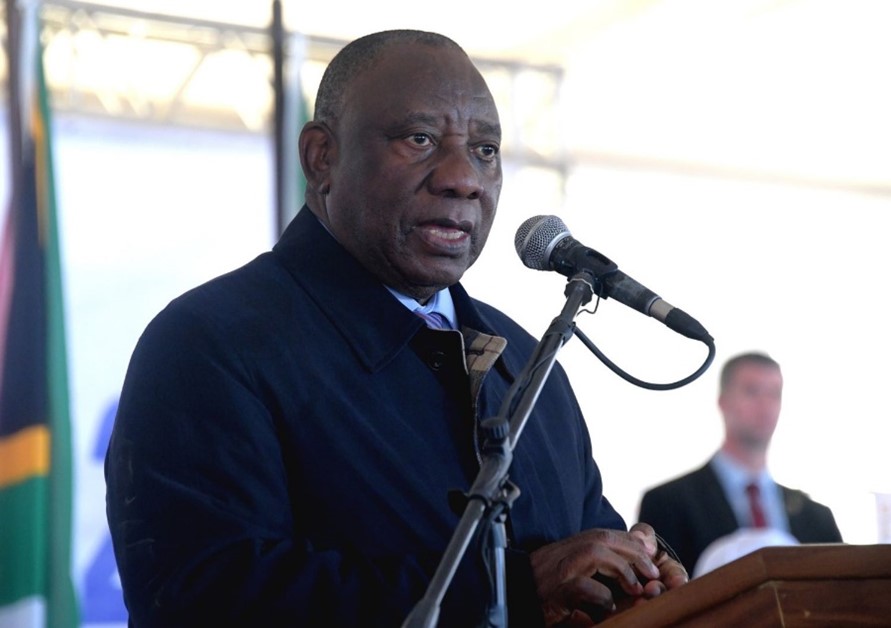On National Women’s Day, last week Friday President Cyril Ramaphosa used his speech to highlight the alarming levels of gender-based violence (GBV) in South Africa. Yes GBV still flourishes on a significant scale in the country. Addressing a packed Denise Nel Stadium in Pofadder, Northern Cape, Ramaphosa said 7 % of women, who are 18 and above that age, have experienced physical or sexual violence in period that lasts right through a year.
“Seven precent may not sound like a lot but it is equivalent to 1.5 million women who are abused and violated.” The president said this number comes from a survey done by the Human Sciences Research Council (HSRC) on the prevalence of gender-based violence in South Africa. The survey – which measured physical, sexual, emotional and economic abuse – is set to be released in the coming weeks. “These are women who have endured trauma that no person should have to experience,” the president added. “No woman in South Africa should be subjected to violence or sexual harassment.” In addition, Ramaphosa said 13% of women in intimate relationships had experienced economic abuse by their partner.
The plight of women in their relationship to men illustrates the level of alcohol and domestic abuse related to the psycholgy of men. There needs to be a focus on the upbringing of young men and boys and their level of emotional intelligence in relation to the most vulnerable particularly women. The Human Sciences Research Council (HSRC) should offer solutions such as psychological education for the next generation of young men. Alcohol addiction plays an influential role in Gender-based violence and domestic abuse. Sexism also has its roots in the mistreatment of women in the workplace. Education and medical observation concerning the psychological behaviour of men should be monitored by domestic abuse services. The age for drinking alcohol could be increased to 21 as is the case in the United States and Japan.
“This is why we need to address the massive inequality in income between men and women.” He said women in South Africa earn a quarter of their income from grants, but with men it is a much lower percentage. “We must therefore create more jobs and more economic opportunities for women so they are less vulnerable to exploitation and abuse.” He said South African women must be able to gain employment, be businesswomen and ensure there is economic progress in their homes. “We want them to be producers. We want them to be employers and we want them to succeed.” He also said the survey found more than 600 000 men had admitted to being violent against women. “Men must change their behaviour. Men must change their attitudes,” Ramaphosa said.
The government could encourage and sponsor counselling sessions for the men who acknowledge they have a problem. Self help groups could be an answer. Encouraging self-employment among women, who can then earn an income has led to them realizing their self-worth. Earning regenerative income and teaching women to be self-sufficient will give them self-worth and respect. Women need to be educated concerning their rights and responsibilities in the family, and the same needs to be done as regards to men. Women and young girls need to be given the best opportunities, counselling and career guidance as regards towards what path they want to follow. Education and being made aware of the consequences of their crimes are a key factor in disciplining perpetrators of abuse. Expanding the input of education for young boys concerning sexism and domestic violence should be a priority for the government.
Women have taken up important roles in the Government of National Unity (GNU) since its formation.
Education Minister Siviwe Gwarube is one of the youngest and youngest female ministers in Cyril Ramaphosa’s cabinet. She was 34 when she was sworn in and turned 35 in July. Before being sworn in, she served as the Democratic Alliance’s Parliamentary Chief Whip.
Although it’s not ANC member Nobuhle Nkabane’s first rodeo in Parliament, it is her first time as a minister. She was sworn in as the Minister of Higher Education and was the Deputy Minister of Mineral Resources and Energy from 2021 until the general elections.
ANC member and minister of Forestry, Fisheries and Environmental Affairs Bernice Swarts was appointed minister in the seventh administration. Before that, she served in the Portfolio Committee on International Relations and Cooperation and the Standing Committee on Public Accounts.
Nomakhosazana Meth, another ANC member, was the mayor of the OR Tambo District Municipality and an MEC of Health before she ascended to the role of Employment and Labour minister. This is her first time in Parliament.
It is good that there are younger ministers in the cabinet especially women. However, it is up to President Ramaphosa to utilize the skills of his ministers to the best of their ability. The creation of the GNU has led to the acceptance of a more diverse range of politicians in the cabinet. The portfolios they especially the women have been given will enable them such as education, the environment, employment and Labour, as well as others such as small and medium enterprise will go a long way in uplifting the conditions of women across the country. In the GNU party loyalties must be over ruled by state concerns. These female politicians come from a diverse background of former political positions. Not just the national parliament and cabinet, but also the provincial and local. They bring together skills in diplomacy, environmentalism, legal expertise etc. They have been given a unique opportunity to assist in tuning the nation’s livelihood around. It is up to all members of the cabinet and all those in all levels of government men and women to pull through and rally for an end to GBV.
Article written by:
Yacoob Cassim
Journalist at Radio Al Ansaar






